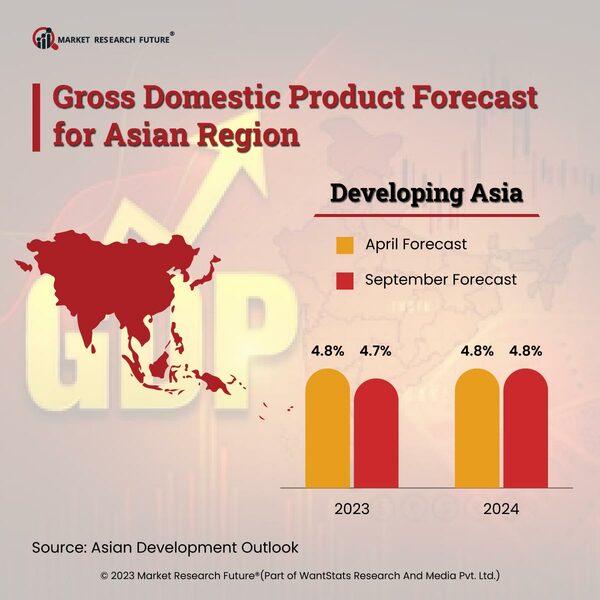
East Asia and the Pacific is Expected to Remain Stronger By 5 Percent in 2023
By Swapnil Palwe , 09 November, 2023
The economic state of a country can be measured by its annual Gross Domestic Product (GDP). GDP acts as a tool to measure the financial strength of nations. World Bank releases the data for the GDP growth in the developing countries of East Asia and the Pacific in 2023.
According to the World Bank, the progress in the emerging nations of East Asia and the Pacific is expected to remain stronger by 5 percent in 2023. The GDP is anticipated to ease in the second half of 2023. In 2024, the Gross Domestic Product (GDP) rate for the East Asia-Pacific region is expected to boost by 4.5 percent, as per the data given by the World Bank. It implies that the area would face the worst recessions and crises in the last five decades, with a 4.5 percent GDP growth in 2024. Various factors are leading to the downfall of GDP in 2024, such as high debt, aging group, weak property sector, and others in China. All these factors would lower the GDP growth in China by 4.4 percent in 2024. In contrast, the rest of East Asia is expected to have a GDP growth of 4.7 percent in 2024. Even if many factors lead to the region's growth in various sectors like automobiles (electric vehicles), battery manufacturing, and others, the GDP growth will remain low for the region in 2024.
The World Bank reports that the stable financial states of East Asia will help balance China's slow progress in 2024. East Asia's economic condition significantly impacts the region's geopolitical problems, climate conditions, and other risks. According to the World Bank, East Asia and the Pacific are the fastest-progressing regions globally. Also, the data provided by the World Bank suggests that the service sector can boost the development of the East Asia and Pacific region in 2023 and further. The region's service sector will play a pivotal role in the progress of the manufacturing sector, as per the World Bank.

Latest News

The climate change issue is necessary since the global clean energy transition has emerged. Green energy transformation requires specific environmental changes strictly followed by the industrial sectors. However, global warming can reduce the…

Solid-state batteries have not been in use for a long time. However, the rising demand for electric vehicles in the automotive market may revamp the sulfur content of solid-state batteries. There are many advantages of sulfur in solid-state…

Artificial intelligence is enhancing the tech industry nowadays. In the past years, artificial intelligence has played a pivotal role in functioning cloud computing and other tech industry infrastructure. One of the bug techs, Microsoft, is investing…

Renewable energy is considered as an alternative to fossil fuels. Nations are replacing fossil fuels with renewables to achieve sustainability in the environment. Renewable energy sources regulate specific sectors like electricity, transportation…

In the industrial applications and production sector, sustainability will play a significant role in 2024. Industries are growing interested in adopting sustainable approaches in light of the clean energy transition. The aviation industry in 2024…

Team Lead - Research
Latest News
















